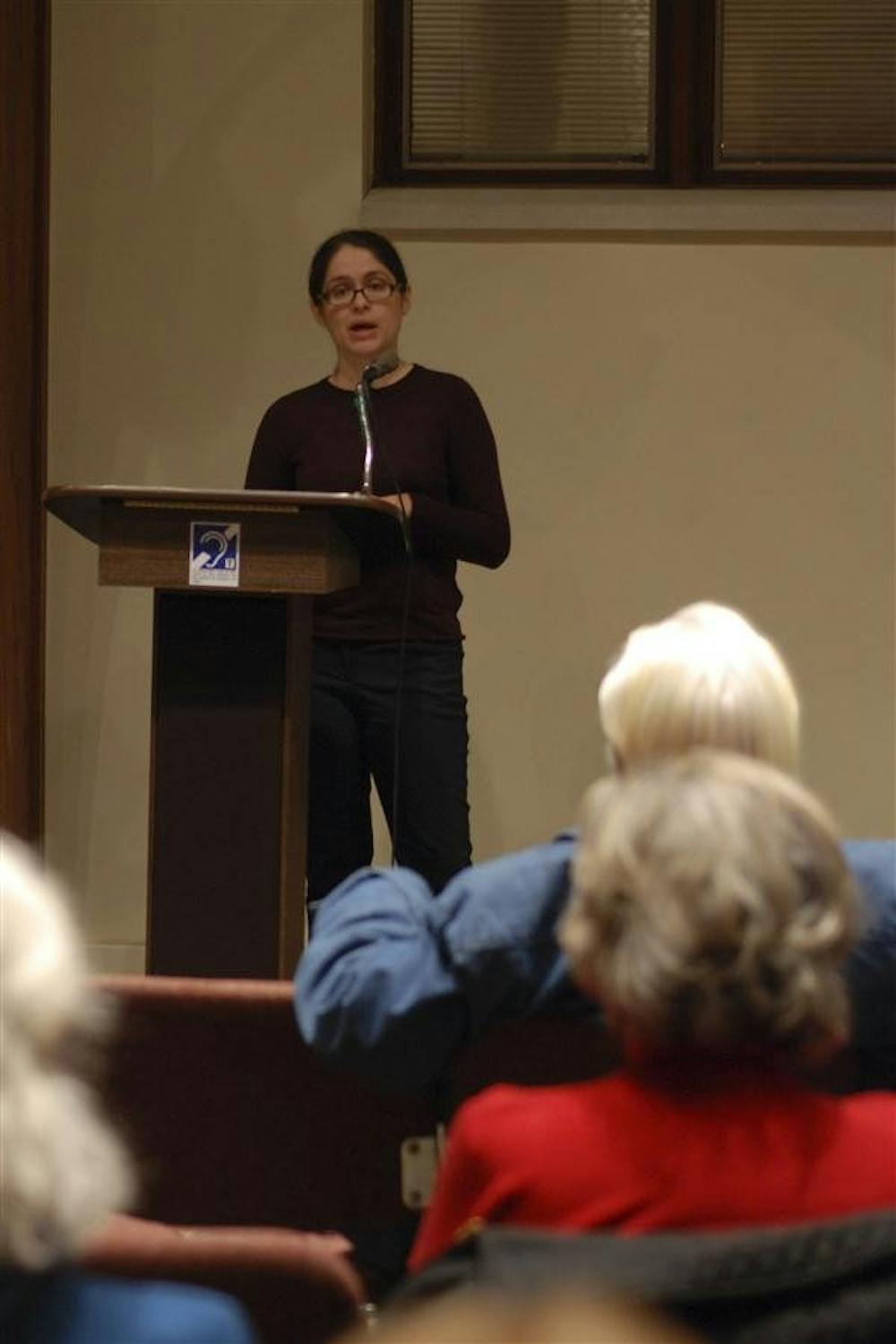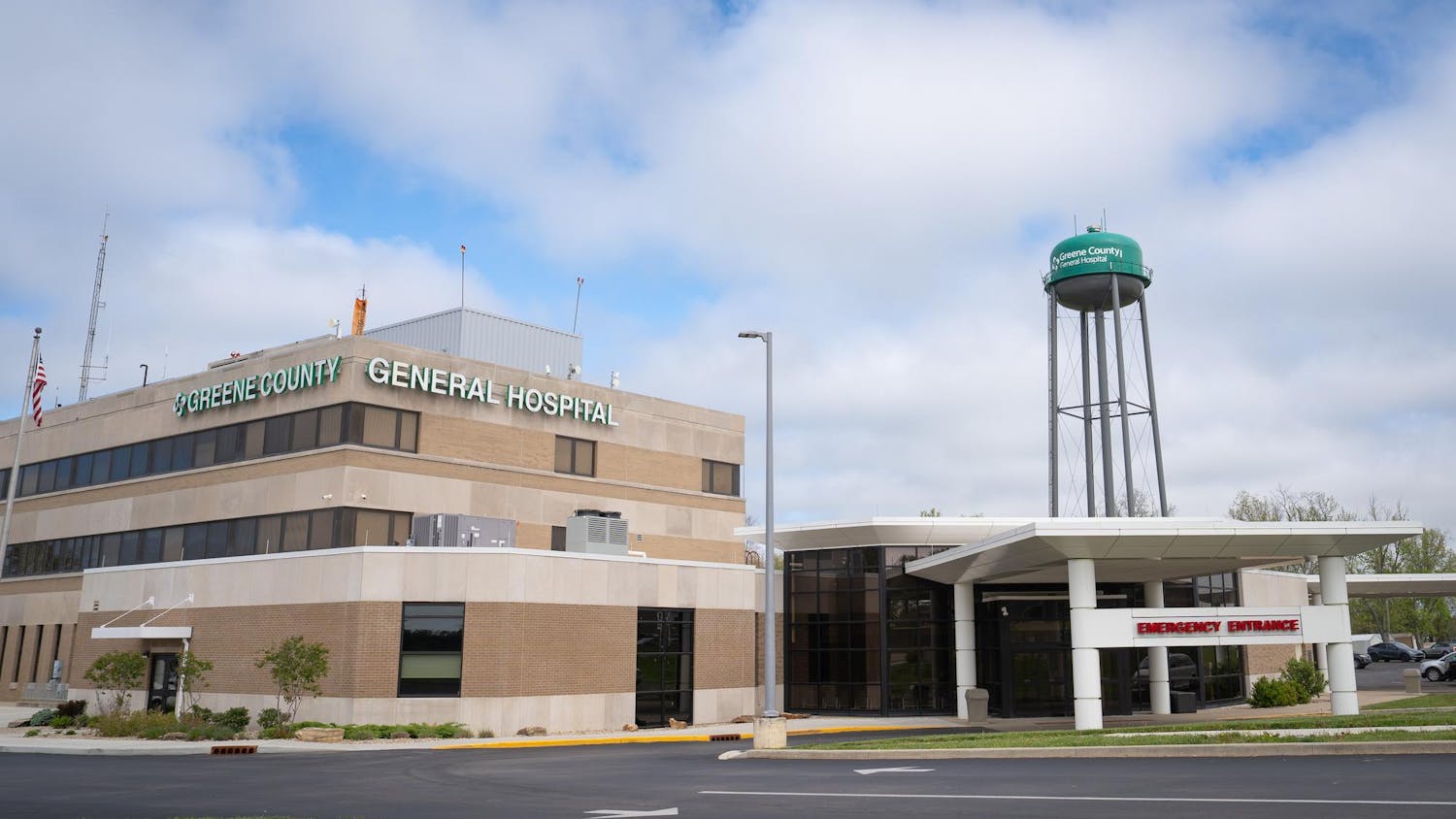Though you see them on the streets of Bloomington during the day — selling paintings, smoking a cigarette — you will not see them at night, when they are banned from falling asleep on the concrete they call home. These aren’t criminals, however. They are the homeless.
Shalom Community Center sponsored a talk at Trinity Church by Whitney Gent, the development and communications director of the National Law Center on Homelessness and Poverty, Monday to discuss issues such as laws targeted to affect the homeless.
“I wish that they were less common than they are,”Gent said.
Megan Hutchison, an IU employee, pointed out that laws targeting the homeless are not only found in big cities. There is a law in Bloomington that prevents people from sleeping on the sidewalks after dark.
Gent said this type of targeting is comparable to racial profiling.
“I’m sad to say these laws are increasing as homelessness increases in the United States,” Gent said.
Gent said many businesses and homeowners near places where homeless people are known to congregate complain to their city officials.
“I think that at the root of these laws and attitudes is fear,” Gent said. “Maybe it’s a fear that homeless people are dangerous.”
Yet she said studies overwhelmingly show this is not the case. She said the homeless are far more likely to become victims of violent crime committed by those who are housed than commit these acts themselves.
Gent said 2009 was the deadliest year in the last decade for the homeless. Rapes, beatings, murders and instances of homeless individuals being set on fire by
attackers were reported in 47 states.
Gent said that according to a poll taken by the Washington Post, 53 percent of Americans fear they will not be able to make their mortgage or rent payments on a regular basis.
Yet Gent said many view the homeless as “slackers” who would not be in such a predicament if they were willing to work harder.
“Homelessness is not an identity; it is a condition,” Gent said. “We are outraged by homeless people instead of being outraged that homelessness exists.”
Gent said steps to prevent and end homelessness are being taken nationally, but much of the progress must be made in grassroots campaigns.
Hal Taylor, a man in his eighties with white hair and a silver star around his neck that reads “peace,” is one Bloomington resident who has taken part in that.
When asked how he would like to be identified, he replied that he was once a priest in an Episcopal church and has a Ph.D. in psychology, but now he dedicates himself to the homeless and wishes to be identified with them.
Every year a winter shelter is established in Bloomington. Taylor told the story of work to establish a summer shelter, as well.
Taylor said he and about 20 others went to an old building on 11th Street after the winter shelter closed for the season on March 21 of this year. They planned to sleep under the overhang of the building to show the need for a shelter.
“We laid our bags out to spend the night under the shelter,” Taylor said. “And then the
police came.”
The action of the group violated the law against sleeping in public places, Taylor said. In this instance, the police let them stay for the rest of the night.
This would soon change. The group moved to the Fourth Street Garage, where they were told to leave. They went to the park on Fourth Street which resulted in the same effect. They moved around more, getting caught and kicked out every time.
Finally they went to one of the shelters at Cascades Park. The second night there, the police came and threatened the group with jail time.
Taylor offered those in the group a choice. They could leave and reconvene at his home, or they could accompany the officers to jail.
“They all went to my house,” Taylor said. “So I went to jail. I felt like one of us had to.”
Taylor said soon after, the pastor and board of directors of Genesis Church helped establish the summer shelter.
Taylor said the establishment of such shelters is absolutely necessary for the safety and well-being of the homeless in Bloomington.
“That’s the real problem of the homeless,” Taylor said. “It’s not being able to really close your eyes and really go to sleep.”
Lecture discusses vulnerability of homeless

Get stories like this in your inbox
Subscribe





